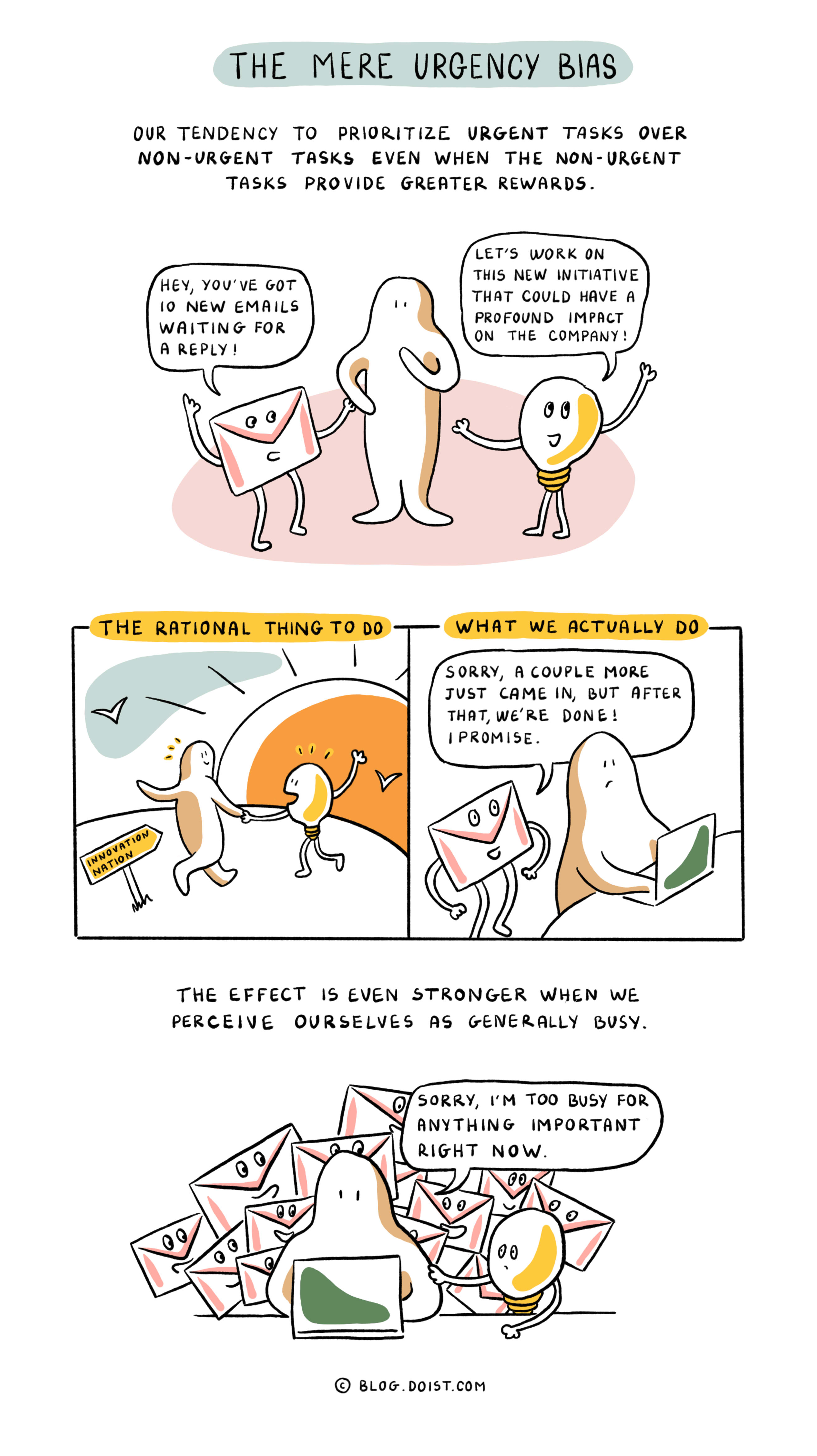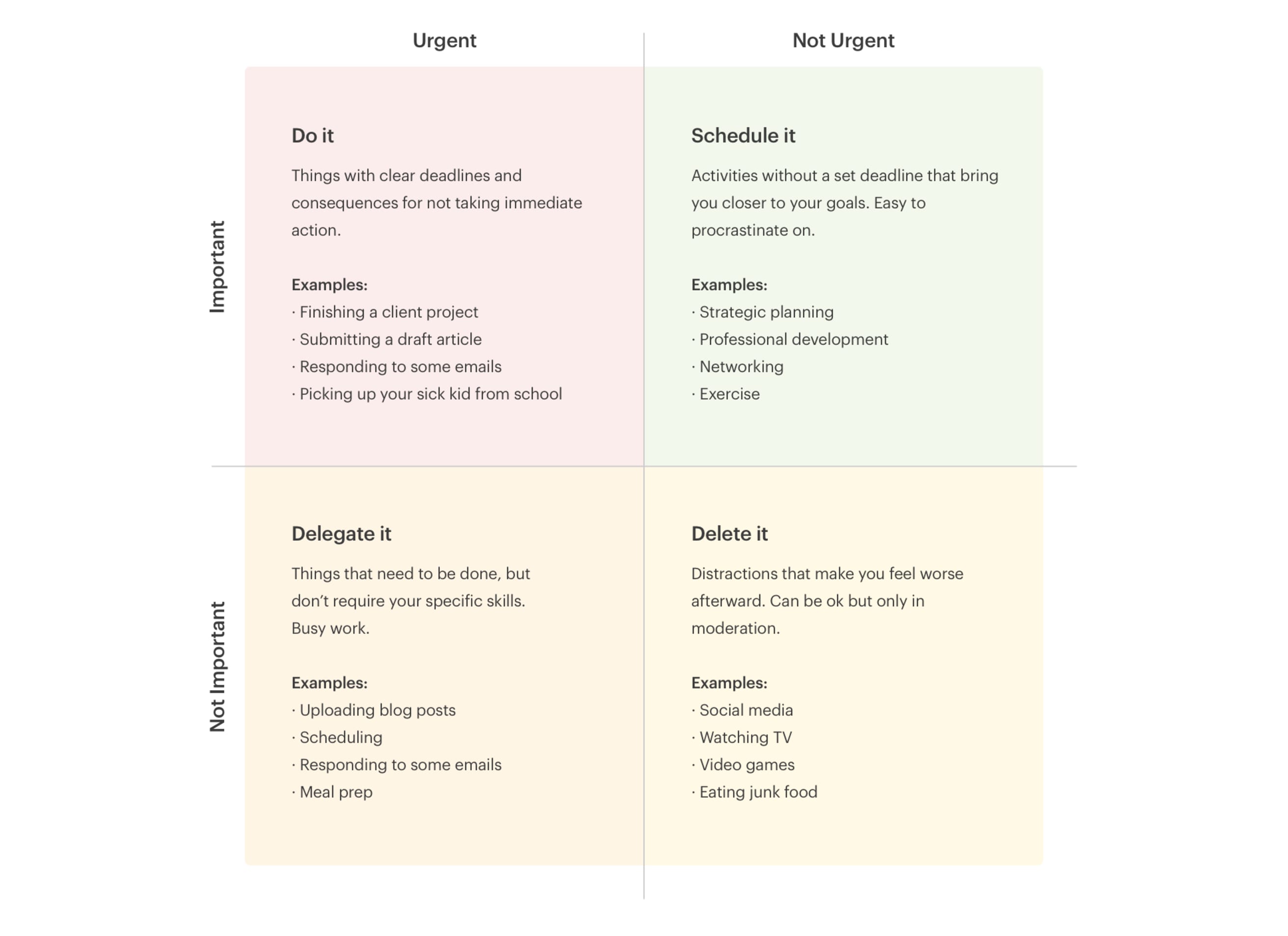
We will always have more tasks to complete than time to complete them. How do we decide what to prioritize? It turns out, not rationally at all.
The Mere Urgency Effect describes our tendency to prioritize tasks we perceive as time-sensitive over tasks that aren’t time-sensitive, even when the rewards of the non-time-sensitive task are objectively greater. In other words, urgency trumps importance every time.
This cognitive bias explains why, despite our best intentions, we get sucked into email and team chats at the expense of more impactful work. Responding to messages invariably feels urgent – there’s always someone waiting for a reply. In contrast, our most important goals are often far off. There are no immediate consequences to putting them off until tomorrow.
Interestingly, research shows that people who perceive themselves as being generally busy are even more likely to fall victim to the Mere Urgency Effect. That means those who feel like they have the least amount of time are the least likely to use it well.
What you can do about it:
Use the Eisenhower Matrix to prioritize your tasks. The Eisenhower Matrix is a framework for classifying tasks as urgent/not urgent and important/not important. The matrix helps you decide what to do with a task depending on which quadrant it falls into.

Set aside your most productive 2-4 hours each day for your most important work. Dedicate your most productive hours to your most important work. Block that time off on your calendar so you can focus without interruptions.
Only check your communication apps at certain times of day. Instead of always responding to emails and messages as they come in, embrace asynchronous communication. Set aside specific time blocks for answering email and responding to messages. For example, at 12pm-12:30 and 4pm-5pm. Don’t let email and team chats bleed into other times of your day.
If you find yourself opening your communication apps outside of your time blocks, use an app blocker like Freedom to lock yourself out at certain times of the day. Alternatively, use an inbox management tool like Mailman that batches incoming mail and delivers it at hourly intervals, a set number of times per day, or at specific times.
Give your important tasks a deadline. It’s nearly impossible to trick yourself into keeping an arbitrary deadline you’ve set for yourself, so find a way to commit to an external deadline, even if you’re just telling a friend.
More reading if you're interested:
How Busyness Leads to Bad Decisions
The Complete Guide to Time Blocking
How to Prioritize When There's Always More to Do
Comic artwork by Anaïs Pirlot-Mares 🎨 Written by Becky Kane ✏️
